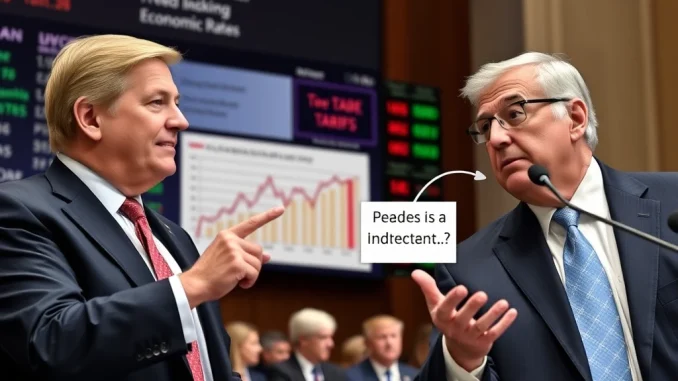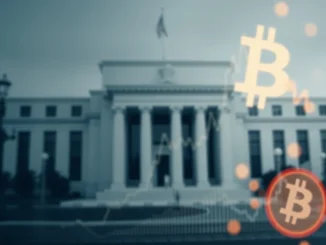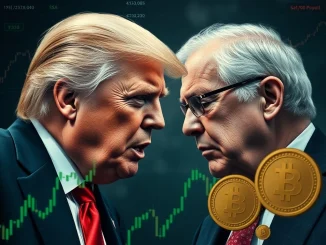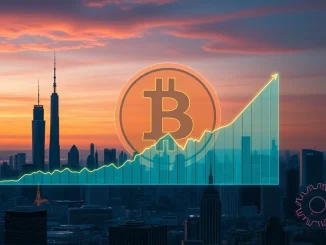
Economic policy debates at the highest levels significantly influence market sentiment, and in turn, the often-volatile world of cryptocurrency. When key figures clash over fundamental issues like US interest rates and trade policy, investors pay close attention. This is precisely what happened recently when U.S. Commerce Secretary Howard Lutnick voiced strong criticism regarding the current economic climate and the actions of Federal Reserve Chair Jerome Powell.
Secretary Lutnick took to social media to express his views, highlighting a point of contention that resonates across financial sectors.
Why Are US Interest Rates a Point of Contention?
Howard Lutnick stated emphatically that the United States, despite being the “greatest country in the world,” faces a significant economic challenge: suffering from the highest interest rates among developed nations. This claim puts a spotlight on the monetary policy set by the Federal Reserve under the leadership of Jerome Powell.
High interest rates are the primary tool the Fed uses to combat inflation. By making borrowing more expensive, the Fed aims to cool down economic activity, reduce demand, and thereby lower prices. However, higher rates can also:
- Increase the cost of mortgages, car loans, and business investments.
- Potentially slow job growth.
- Make U.S. debt more expensive for the government.
- Impact asset valuations, including stocks and potentially cryptocurrencies, as higher-yield safe assets become more attractive.
Lutnick’s criticism suggests he believes the current level of rates is excessive or harming the U.S. economy compared to its peers.
Howard Lutnick Challenges Jerome Powell on Tariffs
Beyond interest rates, Secretary Lutnick also directly challenged comments made by Jerome Powell concerning the impact of tariffs on consumer prices. Powell had reportedly suggested that tariffs were contributing to price increases in certain categories, specifically mentioning personal computers.
Lutnick disputed this, pointing out a factual basis for his disagreement:
“He said tariffs drove up the price of personal computers. There are currently NO tariffs on personal computers,” Lutnick stated.
This highlights a specific point of data disagreement between the Commerce Secretary and the Fed Chair regarding the micro-level impact of trade policy on specific goods. Lutnick added that any future decisions regarding tariffs on semiconductors and computers would follow a detailed analysis by the Commerce Department, implying that policy decisions in his domain are based on thorough review, perhaps contrasting with Powell’s general remarks.
What Does This Disagreement Signify?
This public exchange between two high-ranking U.S. officials underscores differing perspectives within the government on the current economic situation and the appropriate policy responses. While the Federal Reserve operates independently from the executive branch, public criticism from a cabinet secretary like Howard Lutnick is notable.
The debate touches on fundamental questions:
- Are current US interest rates appropriate for the economic conditions?
- What is the actual impact of trade policies like tariffs on inflation?
- How should different parts of the government assess and respond to economic challenges?
For market participants, including those in the crypto space, such disagreements can add to uncertainty. They signal potential shifts in policy thinking or at least highlight the lack of complete consensus among policymakers, which can lead to market volatility.
Summary: A High-Level Economic Clash
In summary, U.S. Commerce Secretary Howard Lutnick has publicly criticized Federal Reserve Chair Jerome Powell, arguing that the U.S. suffers from excessively high US interest rates compared to other developed nations. Furthermore, Lutnick challenged Powell’s assertion that tariffs, specifically on personal computers, have driven up prices, citing the absence of such tariffs. This high-profile disagreement between key economic figures highlights ongoing debates about the state of the U.S. economy and the effectiveness of current monetary and trade policies, providing a critical data point for anyone tracking macroeconomic influences on financial markets.



